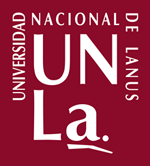Higher education in MERCOSUR: the interplay between domestic policies and regional policies
Abstract
The paper analyzes the specificity of MERCOSUR´s higher education regional policies. This peculiarity can be explained from: the varied ways in which attempts to answer structural and regulatory asymmetries of complex higher education, different academic cultures and academic traditions present in each country, the different state capacities in portfolios responsible for directing the
process and the ways in which each country processes the international trends on higher education. We proceed to a case study: the policy of quality accreditation of undergraduate degrees in MERCOSUR (1998-2012), which featured a first pilot phase between 2002 and 2006 (Experimental Mechanism for the Accreditation of Degree Courses in MERCOSUR, Bolivia and Chile, MEXA) and became, in mid-2008, a permanent system (System of Accreditation of university degrees for the regional recognition of the academic quality within MERCOSUR and Associated States, ARCU-SUR).






